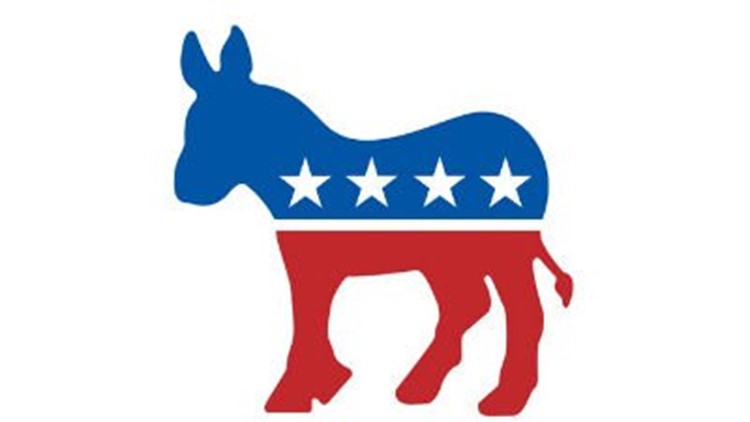WASHINGTON (CNN) — The Democratic candidates for president gathered in New Hampshire for their third debate Saturday, and CNN’s Reality Check team spent the night putting their statements and assertions to the test.
The team of reporters, researchers and editors across CNN listened throughout the debate, selecting key statements and then rating them: True; Mostly True; True, but Misleading; False; or It’s Complicated.
Hillary Clinton
Reality Check: Clinton on gun violence
By Kate Grise, CNN
Hillary Clinton said, “Guns in and of themselves, in my opinion, will not make Americans safer. We lose 33,000 people a year already to gun violence.”
As we first checked in October, according to data from the Centers for Disease Control and Prevention, there were 33,599 people killed by firearms in 2014. However, the number includes suicides, unintentional deaths and incidents with undetermined intent as well as violence-related firearm deaths (homicide and legal intervention). In 2014, 11,409 people were killed in gun violence-related deaths by homicide or legal intervention. The CDC reports 586 unintentional deaths by firearms that year, and they also report 270 deaths where the intent was undetermined.
Suicides accounted for almost two-thirds of the deaths by firearms.
More than 33,000 people did die in 2014 from a firearm injury. However, the number of people killed from violence-related homicides and legal interventions in 2014 was much lower — 11,675 people.
Verdict: True, but misleading
Reality check: Clinton on drug prices
By Debra Goldschmidt, CNN
Hillary Clinton said, “I want Medicare to be able to negotiate for lower drug prices just like they negotiate with other countries’ health systems. We end up paying the highest prices in the world.”
Americans pay some of the highest prices for prescription medications. That’s two to six times more for brand name prescription drugs, according to the International Federation of Health Plans.
For example, the arthritis drug Humira costs Americans $2,246 for a one-month prescription, compared to $881 in Switzerland and $1,102 in England.
Medicare, the largest provider of medications, is prohibited from negotiating prices with drug companies. Some lawmakers have argued this is what’s behind the high prices.
The pharmaceutical industry group, PhRMA, says the high prices are due to the cost of research and development to bring drugs to the market.
Prescription drug spending increased 11.4% in 2014 and 9.6% in 2015 after steadily declining from 2000 to 2013, according to the Peterson-Kaiser Health System Tracker.
The group attributes this to patents expiring and decreases in generic drug prices.
Verdict: True
Reality Check: Clinton on states disinvesting from higher education
By Tami Luhby, CNNMoney
State finances were crushed in the wake of the Great Recession, which began in late 2007. They were forced to enact steep funding cuts since they are required to balance their budgets annually.
On Saturday, Hillary Clinton said “states have been disinvesting in higher education.” She’s right: The ax fell heavily on higher education budgets, forcing public colleges in many states to hike tuition and fees.
Some 47 states spent less per student in the 2014-15 school year than they did in 2008, according to the Center on Budget and Policy Priorities, a left-leaning think tank. Only Alaska, North Dakota and Wyoming are spending more.
States are spending 20% less per student than they did in the 2007-08 school year, on average, according to the center. In Alabama, Arizona, Louisiana, Pennsylvania and South Carolina, spending per student is down by more than 35%.
As a result, tuition at public colleges has soared. Tuition at four-year state colleges has risen by $2,000, or 29% percent, since the 2007-08 school year. In Arizona, tuition spiked more than 80%, while in California, Florida, Georgia, Hawaii and Louisiana, tuition is up more than 60%.
Most states have started spending more on higher education. The trend reversed in 2013, according to a report from the State Higher Education Executive Officers.
Some 35 states have increased higher ed budgets for fiscal year 2016, which started in July in most states, according to the National Association of State Budget Officers. Some 12 states have cut funding for colleges.
So while most states have a ways to go before they get back to pre-recession funding levels, the trend is for more spending on colleges.
Verdict: True, but misleading
Bernie Sanders
Reality Check: Sanders on regime change
By Kevin Liptak, CNN White House producer
Hillary Clinton and Bernie Sanders squabbled over each others’ records on supporting regime change in dictatorships.
Sanders asserted that Clinton’s vote to authorize war in Iraq in 2002 led to Iraq’s current dire state, and said the military push to rid Libya of tyrant leader Moammar Gadhafi created a the power vacuum currently being exploited by ISIS.
“Our differences are fairly deep on this issue,” Sanders said about Clinton. “I worry too much that Secretary Clinton is too much into regime change and a little bit too aggressive without knowing what the unintended consequences might be.”
Sanders, as he notes often on the campaign trail when drawing contrasts with Clinton, did vote against authorizing force against Saddam Hussein in 2002, and he was a vocal opponent of U.S. military action in Libya.
But he is on-record in earlier instances supporting regime change in those countries.
As a congressman, he voted in 1998 for a resolution that “reaffirms that it should be the policy of the United States to support efforts to remove the regime headed by Saddam Hussein from power in Iraq.”
And despite his criticism for Clinton’s handling of Libya, he supported a congressional resolution in 2011 that called on Gadhafi to “desist from further violence, recognize the Libyan people’s demand for democratic change, resign his position and permit a peaceful transition.”
Those point to a record of supporting regime change, even if he later opposed U.S. military action as means to those ends.
We rate his claim that his previous record is different to Clinton’s in supporting regime change as False.
Reality Check: Sanders on gun ownership in Vermont
By Lisa Rose, CNN
Bernie Sanders said that more than half of the people in Vermont are gun owners, and he added that New Hampshire has a similar number of residents with firearms.
It’s difficult to say where Sanders got those statistics because the government does not track and publish gun ownership rates per state. The most reliable information available is from a 2015 study in the journal, Injury Prevention. According to the study, 28.8% of Vermonters are gun owners and 14.4% of New Hampshire residents own guns. Just six states — West Virginia, Arkansas, Montana, Wyoming, Idaho and Alaska — have gun ownership levels greater than 50%, according to the report.
One caveat: Although the study was published in 2015, the statistics are based on a survey conducted in 2013.
Verdict: False



